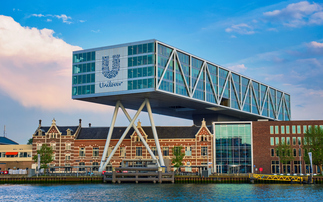Carbon Retirement's Jane Burston runs down the highs and lows of the Durban climate change summit so far
We're a few days into the global climate summit and, despite the pervasive pessimism, things are starting to hot up a little. So I've put together lists of what's hot and what's not from proceedings so far..
What's hot
Qatar, which has been selected to run the climate summit next year. The jury's out on whether it'll opt for air conditioned yet open-topped conference, like the stadia they're proposing for the football World Cup, or whether it'll corral the Middle East into an agreement in an attempt to make the conference a success. Or both. Who knows?
British Council Climate Champions. I would say this as I was one in 2009. This year's international Champions are a high-energy, optimistic bunch who are getting on and making positive change in their countries. Amid the doom and gloom, the fact that people are achieving a lot from the ground up is very uplifting.
The weather. Obvious a given we're in Durban but it does make one sleepy in the eleventh PowerPoint presentation of the day. Unfortunately this applies all over, over the past decade...the WMO have unveiled a report at these talks that shows the last decade has been the hottest since records began, and this year is likely to be the 10th hottest on record.
What's not
Canada. After taking its time, Canada finally ratified the Kyoto Protocol. But is due to miss its emissions reduction targets and is one of only three countries to have announced a lack of support for a second commitment period, along with Japan and Russia.
It was awarded both second AND first prize in the NGO 'Fossil of the Day' award on the first day of the summit for both this and its insistence in pursuing tar sands, surprisingly for a deal that has apparently been agreed with..
..the UK! Shame on them. Greenest Government ever? Hmmm.
Progress on our current emission reduction commitments. Denmark, Italy and Spain are likely to miss their Kyoto targets, according to the European Environment Agency. As well as, you guessed it, Canada. Many other countries meeting their targets because of outsourcing production to developing countries and buying carbon offsets.
The food. Sounds trivial, I know, but negotiators, journalists and lobbyists all need to eat. I doubt I'm in a very tiny majority of vegetarians here - we are talking about sustainability after all. But the vegetarian option is consistently soggy sarnies - not great when most people are here more than 12 hours each day. Despite that today I am determinedly glad to be vegetarian...having seen the guy at my table pull a giant chicken foot out of his stew. Yum.
Jane Burston is founder and director of offsetting company Carbon Retirement






